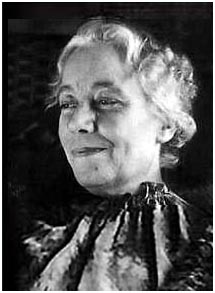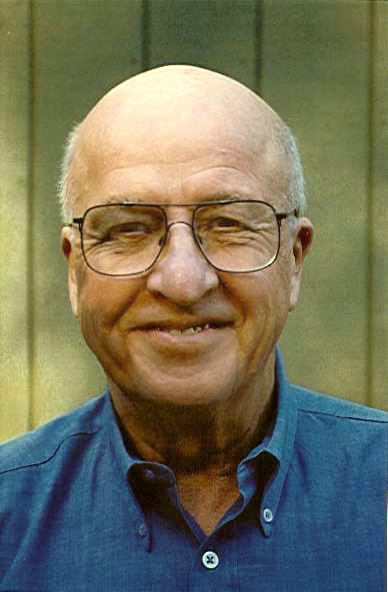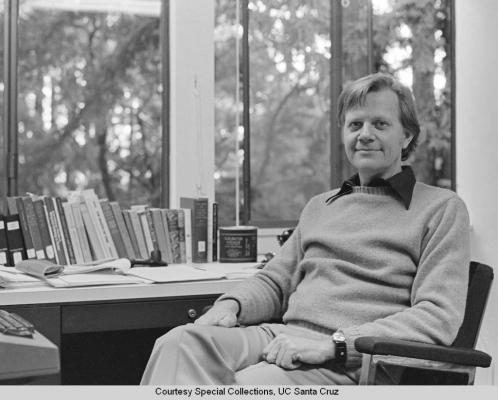|
Psychoanalytic Literary Criticism
Psychoanalytic literary criticism is literary criticism or literary theory which, in method, concept, or form, is influenced by the tradition of psychoanalysis begun by Sigmund Freud. Psychoanalytic reading has been practised since the early development of psychoanalysis itself, and has developed into a heterogeneous interpretive tradition. As Celine Surprenant writes, "Psychoanalytic literary criticism does not constitute a unified field. However, all variants endorse, at least to a certain degree, the idea that literature ... is fundamentally entwined with the psyche." Psychoanalytic criticism views artists, including authors, as neurotic. However, an artist escapes many of the outward manifestations and end results of neurosis by finding in the act of creating his or her art a pathway back to sanity and wholeness. Overview The object of psychoanalytic literary criticism, at its very simplest, can be the psychoanalysis of the author or of a particularly interesting characte ... [...More Info...] [...Related Items...] OR: [Wikipedia] [Google] [Baidu] |
Literary Criticism
Literary criticism (or literary studies) is the study, evaluation, and interpretation of literature. Modern literary criticism is often influenced by literary theory, which is the philosophical discussion of literature's goals and methods. Though the two activities are closely related, literary critics are not always, and have not always been, theorists. Whether or not literary criticism should be considered a separate field of inquiry from literary theory is a matter of some controversy. For example, the ''Johns Hopkins Guide to Literary Theory and Criticism'' draws no distinction between literary theory and literary criticism, and almost always uses the terms together to describe the same concept. Some critics consider literary criticism a practical application of literary theory, because criticism always deals directly with particular literary works, while theory may be more general or abstract. Literary criticism is often published in essay or book form. Academic liter ... [...More Info...] [...Related Items...] OR: [Wikipedia] [Google] [Baidu] |
Womb Envy
In psychology, womb envy denotes the envy that men may feel of the biological functions of the female (pregnancy, childbirth, breastfeeding). The neo-Freudian psychiatrist Karen Horney (1885–1952) proposed this as an innate male psychological trait. These emotions could fuel the social subordination of women, and drive men to succeed in other areas of life, such as business, law, and politics. Each term is analogous to the concept of female penis envy presented in Freudian psychology. In this they address the gender role social dynamics underlying the "envy and fascination with the female breasts and lactation, with pregnancy and childbearing, and vagina envy hatare clues and signs of transsexualism and to a femininity complex of men, which is defended against by psychological and sociocultural means". Theory Womb envy denotes the envy men may feel towards a woman's role in nurturing and sustaining life. In coining the term, the Neo-Freudian psychiatrist Karen Horney (1885� ... [...More Info...] [...Related Items...] OR: [Wikipedia] [Google] [Baidu] |
Reader Response Criticism
Reader-response criticism is a school of literary theory that focuses on the reader (or "audience") and their experience of a literary work, in contrast to other schools and theories that focus attention primarily on the author or the content and form of the work. Development Although literary theory has long paid some attention to the reader's role in creating the meaning and experience of a literary work, modern reader-response criticism began in the 1960s and '70s, particularly in the US and Germany. This movement shifted the focus from the text to the reader and argues that affective response is a legitimate point for departure in criticism. Its conceptualization of critical practice is distinguished from theories that favor textual autonomy (for example, formalism) as well as recent critical movements (for example, structuralism, semiotics, and deconstruction) due to its focus on the reader's interpretive activities. Classic reader-response critics include Norman Holland, St ... [...More Info...] [...Related Items...] OR: [Wikipedia] [Google] [Baidu] |
Norman Holland
Norman N. Holland (September 19, 1927, New York City - September 28, 2017) was an American literary critic and Marston-Milbauer Eminent Scholar Emeritus at the University of Florida. Holland's scholarship focused largely on psychoanalytic criticism and cognitive poetics, subjects on which he wrote fifteen books and nearly 250 scholarly articles. He is widely recognized for his scholarship specifically related to psychoanalytic applications in literary study. He was known as a major scholar of literary theory, primarily for having been one of the pioneers of reader-response criticism. Holland's writings have been translated into Chinese, Dutch, Persian, French, German, Italian, Japanese, Korean, Hungarian, Polish, Russian, Spanish, and Turkish. Academic positions and professional history Holland received a B.S. in electrical engineering in 1947 from the Massachusetts Institute of Technology (MIT) and a J.D. in 1950 from Harvard Law School. As his interests shifted from patent l ... [...More Info...] [...Related Items...] OR: [Wikipedia] [Google] [Baidu] |
Ego Psychology
Ego psychology is a school of psychoanalysis rooted in Sigmund Freud's structural id-ego-superego model of the mind. An individual interacts with the external world as well as responds to internal forces. Many psychoanalysts use a theoretical construct called the ego to explain how that is done through various ego functions. Adherents of ego psychology focus on the ego's normal and pathological development, its management of libidinal and aggressive impulses, and its adaptation to reality. History Early conceptions of the ego Sigmund Freud initially considered the ego to be a sense organ for perception of both external and internal stimuli. He thought of the ego as synonymous with consciousness and contrasted it with the repressed unconscious. In 1910, Freud emphasized the attention to detail when referencing psychoanalytical matters, while predicting his theory to become essential in regards to everyday tasks with the Swiss psychoanalyst, Oscar Pfister. By 1911, he ref ... [...More Info...] [...Related Items...] OR: [Wikipedia] [Google] [Baidu] |
The Purloined Letter
"The Purloined Letter" is a short story by American author Edgar Allan Poe. It is the third of his three detective stories featuring the fictional C. Auguste Dupin, the other two being " The Murders in the Rue Morgue" and " The Mystery of Marie Rogêt". These stories are considered to be important early forerunners of the modern detective story. It first appeared in the literary annual ''The Gift for 1845'' (1844) and soon was reprinted in numerous journals and newspapers. Plot summary The unnamed narrator is with the famous Parisian amateur detective C. Auguste Dupin when they are joined by G-, prefect of the Paris police. The prefect has a case he would like to discuss with Dupin. A letter from the queen's lover has been stolen from her boudoir by the unscrupulous Minister D—. D— had been in the room, saw the letter, and switched it for a letter of no importance. He has since been blackmailing the queen. The prefect makes two deductions with which Dupin does not disagree: # ... [...More Info...] [...Related Items...] OR: [Wikipedia] [Google] [Baidu] |
Edgar Allan Poe
Edgar Allan Poe (; Edgar Poe; January 19, 1809 – October 7, 1849) was an American writer, poet, editor, and literary critic. Poe is best known for his poetry and short stories, particularly his tales of mystery and the macabre. He is widely regarded as a central figure of Romanticism in the United States, and of American literature. Poe was one of the country's earliest practitioners of the short story, and considered to be the inventor of the detective fiction genre, as well as a significant contributor to the emerging genre of science fiction. Poe is the first well-known American writer to earn a living through writing alone, resulting in a financially difficult life and career. Poe was born in Boston, the second child of actors David and Elizabeth "Eliza" Poe. His father abandoned the family in 1810, and when his mother died the following year, Poe was taken in by John and Frances Allan of Richmond, Virginia. They never formally adopted him, but he was with them ... [...More Info...] [...Related Items...] OR: [Wikipedia] [Google] [Baidu] |
Jacques Derrida
Jacques Derrida (; ; born Jackie Élie Derrida; See also . 15 July 1930 – 9 October 2004) was an Algerian-born French philosopher. He developed the philosophy of deconstruction, which he utilized in numerous texts, and which was developed through close readings of the linguistics of Ferdinand de Saussure and Husserlian and Heideggerian phenomenology.Jacques Derrida . ''Encyclopædia Britannica''. Britannica.com. Retrieved 19 May 2017. He is one of the major figures associated with post-structuralism and postmodern philosophyVincen ... [...More Info...] [...Related Items...] OR: [Wikipedia] [Google] [Baidu] |
Trope (literature)
A literary trope is the use of figurative language, via word, phrase or an image, for artistic effect such as using a figure of speech. Keith and Lundburg describe a trope as, "a substitution of a word or phrase by a less literal word or phrase." The word ''trope'' has also come to be used for describing commonly recurring or overused literary and rhetorical devices, motifs or clichés in creative works. Literary tropes span almost every category of writing, such as poetry, film, plays, and video games. Origins The term ''trope'' derives from the Greek (''tropos''), "turn, direction, way", derived from the verb τρέπειν (''trepein''), "to turn, to direct, to alter, to change". Tropes and their classification were an important field in classical rhetoric. The study of tropes has been taken up again in modern criticism, especially in deconstruction. Tropological criticism (not to be confused with tropological reading, a type of biblical exegesis) is the historical study ... [...More Info...] [...Related Items...] OR: [Wikipedia] [Google] [Baidu] |
Hayden White
Hayden V. White (July 12, 1928 – March 5, 2018) was an American historian in the tradition of literary criticism, perhaps most famous for his work '' Metahistory: The Historical Imagination in Nineteenth-Century Europe'' (1973/2014). Career White received his Bachelor of Arts degree from Wayne State University (1951) and his Master of Arts (1952) and Doctor of Philosophy (1955) degrees from the University of Michigan. While an undergraduate at Wayne State, White studied history under William J. Bossenbrook alongside then-classmate Arthur Danto. In 1998, White directed a seminar ("The Theory of the Text") at the School of Criticism and Theory. He was elected to the American Academy of Arts and Sciences in 1991. In 2000, he was elected to the American Philosophical Society. Among White's influences, there were two major figures who taught him "how the historian interprets something." The first was William J. Bossenbrook, who taught White as an undergraduate at Wayne Sta ... [...More Info...] [...Related Items...] OR: [Wikipedia] [Google] [Baidu] |
Northrop Frye
Herman Northrop Frye (July 14, 1912 – January 23, 1991) was a Canadian literary critic and literary theorist, considered one of the most influential of the 20th century. Frye gained international fame with his first book, '' Fearful Symmetry'' (1947), which led to the reinterpretation of the poetry of William Blake. His lasting reputation rests principally on the theory of literary criticism that he developed in '' Anatomy of Criticism'' (1957), one of the most important works of literary theory published in the twentieth century. The American critic Harold Bloom commented at the time of its publication that ''Anatomy'' established Frye as "the foremost living student of Western literature." Frye's contributions to cultural and social criticism spanned a long career during which he earned widespread recognition and received many honours. Biography Early life and education Born in Sherbrooke, Quebec, but raised in Moncton, New Brunswick, Frye was the third child of He ... [...More Info...] [...Related Items...] OR: [Wikipedia] [Google] [Baidu] |
Joseph Campbell
Joseph John Campbell (March 26, 1904 – October 30, 1987) was an American writer. He was a professor of literature at Sarah Lawrence College who worked in comparative mythology and comparative religion. His work covers many aspects of the human experience. Campbell's best-known work is his book ''The Hero with a Thousand Faces'' (1949), in which he discusses his theory of the journey of the archetypal hero shared by world mythologies, termed the monomyth. Since the publication of ''The Hero with a Thousand Faces'', Campbell's theories have been applied by a wide variety of modern writers and artists. His philosophy has been summarized by his own often repeated phrase: "Follow your bliss." He gained recognition in Hollywood when George Lucas credited Campbell's work as influencing his '' Star Wars'' saga. Campbell's approach to folklore topics such as myth and his influence on popular culture has been the subject of criticism, including from folklorists. Life Background ... [...More Info...] [...Related Items...] OR: [Wikipedia] [Google] [Baidu] |






